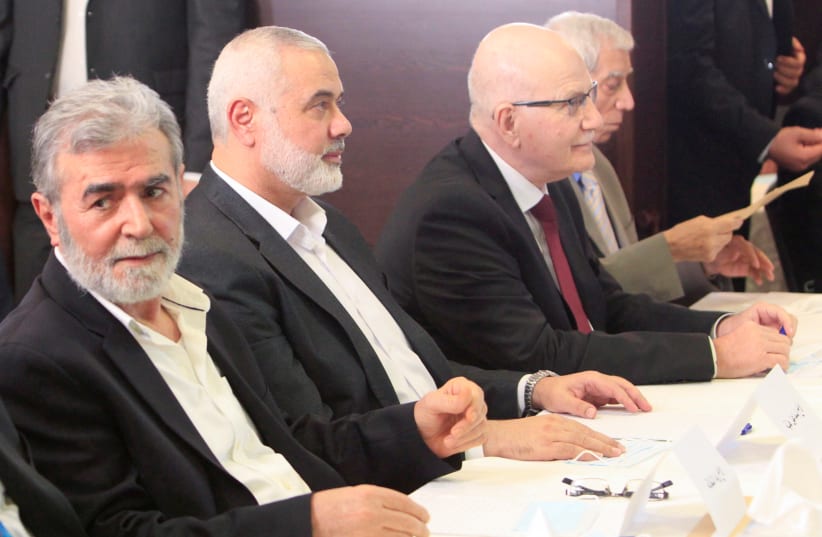Palestinian Islamic Jihad Secretary-General Ziyad al-Nakhlah expressed outrage that Hamas was accepting and facilitating economic aid approved by Israel, saying the aid provided by Egypt to Gaza was an attempt by Israel to "tame Gaza" with economic incentives, during an interview with the Hezbollah-affiliated Al-Mayadeen on Wednesday evening.
"The resistance should not play the role of an agent in facilitating the work of citizens within the Israeli entity," stressed the PIJ leader. "Israel wants to turn the West Bank and Gaza into warehouses for workers, and this is something we do not accept."
"Israel considers Gaza a time bomb that it wants to dismantle, and the new facilities come within this framework," said al-Nakhalah. "Everyone in the region is betting that the resistance will become afraid for privileges and facilities and will not enter into a war."
The PIJ leader stressed that the factions are obligated to defend the Palestinians and warned that Israel is trying to separate Gaza from the West Bank and Jerusalem.
Al-Nakhalah additionally complained that the Palestinian Authority has a "negative attitude" towards popular and "resistance" movements in the West Bank, calling on the factions in Jenin and the West Bank to "continue the resistance."
Jenin serves as a stronghold for armed groups belonging to Hamas, the PIJ and Fatah.
Last week, armed clashes erupted between Palestinian Authority security forces and several gunmen in Jenin, after the security officers entered the camp to arrest Palestinians wanted by the PA for possession of illegal weapons and involvement in criminal activities.
The PIJ leader additionally warned Israel that the movement would fire rockets at Tel Aviv if any member or leader of the movement was targeted or assassinated.
The threat comes after a member of the PIJ was killed in clashes with the IDF in Tubas, located northeast of Nablus in the West Bank, last week and two other PIJ members were killed in clashes with Israel in the West Bank in October.
Al-Nakhlah added that the PIJ can bomb all the cities in Israel "at the same moment" and warned that the factions in the Gaza Strip have drones and workshops to manufacture drones, adding that he ruled out that Israel would respond to the factions by attacking Gaza "because the repercussions will be great."
The PIJ leader claimed that the factions in the Gaza Strip have managed to restore and strengthen their military capabilities since Operation Guardian of the Walls.
An internal IDF investigation carried out following Operation Guardian of the Walls in May found that there were significant intelligence gaps that prevented the military from meeting expectations that it had set prior to the fighting.
The gaps included a shortage of intelligence about rocket arrays, anti-tank guided missiles, snipers and the locations of Hamas leaders.
The IDF nevertheless said that the conflict was a success and that the military struck the groups in the Strip with an extreme force that deprived Hamas and PIJ of many of their capabilities.
Khaled Abu Toameh and Anna Ahronheim contributed to this report.

